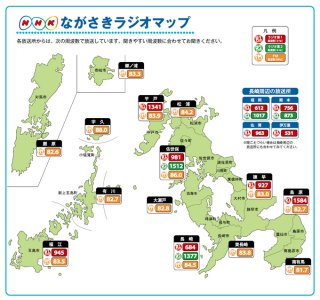My thoughts are with all the people affected by this tragedy.
Looks like cell service is still out in many areas following the quake on 1/1/24.
the story here may change as more info comes in but so far here is a story about the subject,
Telecom carriers report service disruptions in quake-hit areas | NHK WORLD-JAPAN News
I can't verify this, but I'd say "good old fashion over the air radio stations" were there to help, yes a radio tower, say 5 miles away could have come down knocking that station off the air but another radio station say 25 or 35 miles from epicenter could be OK and giving important info for the people to help them, especially right after the quake.
That is what happened in SF in 1989.
Until the cell service comes back in the recent quake in Japan, streaming on a Smartphone, for help info, is out of the picture, but OTA radio with its ability to sends signals far from the main area impacted will always be the one to turn to when the crap hits the fan, this recent and pass earthquakes are perfect examples.
In SF, in 1989 it happened, after that earthquake . . . yes that was along time ago and many said the phone companies improved things since but in 2011 in that major quake in Eastern Japan cell service went out . . . that was about 13 years ago . . . and now just afew days ago cell service went out.
So it looks like "the good old phone company is still not so good in major emergencies" . . . if a person was looking to their Smartphone to get info . . . well streaming failed them - just recently.
Looks like cell service is still out in many areas following the quake on 1/1/24.
the story here may change as more info comes in but so far here is a story about the subject,
Telecom carriers report service disruptions in quake-hit areas | NHK WORLD-JAPAN News
I can't verify this, but I'd say "good old fashion over the air radio stations" were there to help, yes a radio tower, say 5 miles away could have come down knocking that station off the air but another radio station say 25 or 35 miles from epicenter could be OK and giving important info for the people to help them, especially right after the quake.
That is what happened in SF in 1989.
Until the cell service comes back in the recent quake in Japan, streaming on a Smartphone, for help info, is out of the picture, but OTA radio with its ability to sends signals far from the main area impacted will always be the one to turn to when the crap hits the fan, this recent and pass earthquakes are perfect examples.
In SF, in 1989 it happened, after that earthquake . . . yes that was along time ago and many said the phone companies improved things since but in 2011 in that major quake in Eastern Japan cell service went out . . . that was about 13 years ago . . . and now just afew days ago cell service went out.
So it looks like "the good old phone company is still not so good in major emergencies" . . . if a person was looking to their Smartphone to get info . . . well streaming failed them - just recently.






